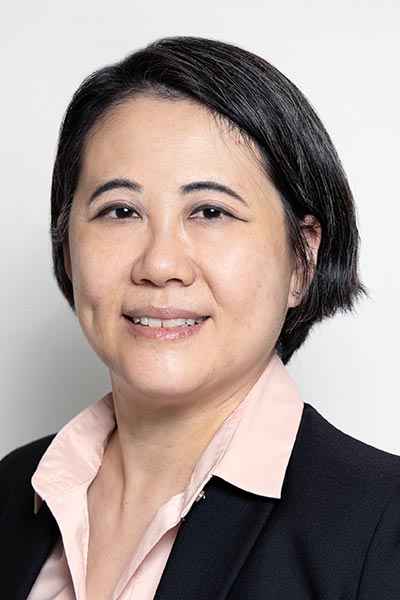Annual Meeting program kicks off with dozens of Educational Sessions and Methods Workshops
The AACR Annual Meeting 2022 program officially launches at 12 p.m. CDT today and features 50 Educational Sessions and 13 Methods Workshops over the first two days of the meeting covering some of the hottest cancer research topics.

“With topics that span from bench to bedside, this year’s AACR Educational Sessions and Methods Workshops will be of tremendous interest to everyone from fundamental and translational research scientists to clinical investigators,” said Lillian L. Siu, MD, Chair of the Annual Meeting Education Committee.
As a physician-scientist, Siu said she is excited for several sessions examining novel therapeutic targets, including those previously deemed difficult or impossible to interrogate.
“The advances in molecular biology, chemistry, and multi-omic technologies have led us into an era of anticancer drug development that was unfathomable in the past,” she said, highlighting five Educational Sessions in particular:
Degrading Undruggable Targets in Pediatric Cancer
Friday, April 8 | 3 – 4:30 p.m. CDT | Room 243-245, Convention Center
Chaired by Nathanael S. Gray, PhD, this Educational Session will focus on protein degradation of traditionally challenging-to-drug targets such as Brd9, EWS-FLI, and ENL/AF9. The potential of modulating tumorigenic chromatin regulation may offer new therapeutic opportunities in human cancers, including pediatric malignancies, Siu said.
Novel Antibody Drug Conjugates
Saturday, April 9 |12:30 – 2 p.m. CDT | La Nouvelle Orleans A-B, Convention Center
During this session, three speakers will examine the use of novel antibody drug conjugates to deliver non-cytotoxic payloads. The session will feature speakers from academia (Funda Meric-Bernstam, MD) and the pharmaceutical sector (Kenneth S. Thress, PhD, and Andrew J. Souers, PhD) discussing topics such as patient selection and toxicity profiles.
Chemistry to the Clinic, Part 1 of 3: Targeting RAS Beyond KRAS G12C
Saturday, April 9 | 8 – 9:30 a.m. CDT | Great Hall BC, Convention Center
Co-chaired by Kevan M. Shokat, PhD, and Adrian L. Gill, PhD, this session will showcase emerging preclinical approaches to inhibit RAS oncogenic hotspots beyond KRAS G12C.
Chemistry to the Clinic, Part 2 of 3: Progress in Small Molecule Cancer Immunology Therapy
Saturday, April 9 | 10 – 11:30 a.m. CDT | Room 243-245, Convention Center
This session will focus on HPK1, CD73, and other immuno-oncology indications. These oral immunotherapeutic agents are being developed using different chemical approaches, providing insights into new ways to activate the immune system.
Chemistry to the Clinic, Part 3 of 3: Evolution of Computational Tools and Strategies to Advance Oncology Drug Development
Saturday, April 9 | 2:30 – 4 p.m. CDT | New Orleans Theater A, Convention Center
This session aims to provide a didactic perspective on evaluating the true potential for the impact of current state-of-the-art computational technologies on oncology discovery programs.
Other Methods Workshops and Educational Sessions of note include:
Liquid Biopsy: From Biology to Clinical Use
Friday, April 8 | 3 – 4:30 p.m. CDT | La Nouvelle Orleans A-B, Convention Center
This Methods Workshop will highlight current challenges in liquid biopsy research, a field that is gaining increasing clinical utility in oncology and serves as an example of transforming molecular science to clinical tools, Siu said.
Using Real-World Clinico-genomic Data: AACR Project GENIE as a Use Case
Saturday, April 9 | 12:30 – 2 p.m. CDT | Room 243-245, Convention Center
The presenters in this Methods Workshop will discuss why real-world data are important and examine some of the considerations when using retrospective, clinico-genomic data ranging from collection, QA, analysis, and visualization using AACR Project GENIE as a use case.
Epigenetics in Cancer
Friday, April 8 | 3 – 4:30 p.m. CDT | La Nouvelle Orleans C, Convention Center
This Educational Session will examine the general principles through which epigenetic alterations lead normal cells to transform into malignant entities, changing cell fate and trajectory.
Precision Strategies for Cancer Risk Reduction
Saturday, April 9 | 8 – 9:30 a.m. CDT | New Orleans Theater B, Convention Center
This Educational Session will address recent advances in cancer risk stratification and the development of novel risk reduction strategies in preclinical and clinical settings. Topics will include strategies to maximize the efficient use of data and methods to improve the benefit-to-harm ratio for screening and prevention programs.
Single Cell Biology in Scale and Spatial Genomics
Saturday, April 9 | 10 – 11:30 a.m. CDT | Great Hall AD, Convention Center
This Educational Session will examine recent technological developments in the area of single-cell biology and spatial genomics, with a focus on methods that permit highly scalable characterization of tumor and other cells that contribute to the tumor microenvironment.
The Annual Meeting Education Committee is co-chaired by Trey Ideker, PhD, Martine Roussel, PhD, FAACR, and Mariana C. Stern, PhD.
[sub-post-content]
